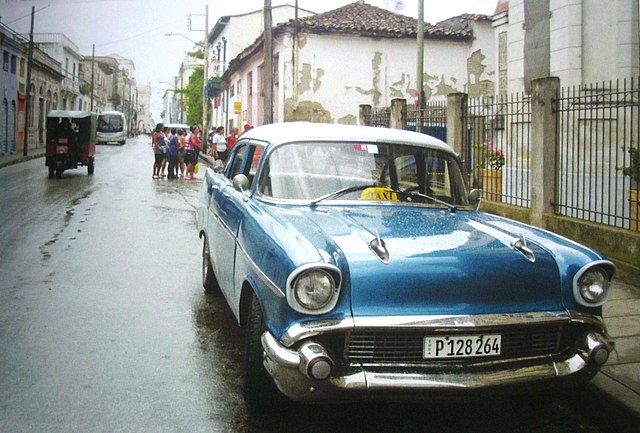By Grace Tylee and Caroline Val
Protesters took to the streets in Santiago de Cuba to speak out against the Cuban government due to ongoing food shortages and power outages. This comes as a result of the economic crisis in Cuba, the worst since the end of the Cold War.
Extreme power outages last up to 18-24 hours of the day on the island. Limited access to food and medicine have also left Cubans in dire straits as a result of the government’s increasing economic instability.
These protests come from a larger issue left unresolved from the impact of the COVID-19 pandemic on the Cuban economy. The President of Cuba, Miguel Diaz-Canel, blamed the U.S. for inciting the unrest, labeling it as “interventionist” and accusing the embargo as being a root cause for the uprisings.
The protests are the latest to break out on the island since July 2021, when demonstrators were protesting similar issues in response to the COVID-19 pandemic with the popular slogan “S.O.S Cuba.”
Diaz-Canel took to social media in response to the protests, blaming the uprisings on influence from Cuban exiles in South Florida rather than the lack of the nation’s resources.
Cuba is economically and politically isolated as an island nation, largely because of the embargo placed upon by the United States and other nations prohibiting trade relations and limiting their international resources. This contributes to much of the lack of supplies that Cuba offers its people.
However, former dean of international studies and co-founder of the Institute for Cuban and Cuban-American Studies at UM, Andy Gomez, argues that some practices allowed under the U.S. embargo with Cuba still do not explain the island’s severe economic limitations.
“Even those that have American dollars have a hard time finding things like bottled water in Havana, the capital. Electricity was out for 24 hours the other day, the entire island was shut down,” said Gomez.
“Is it the economic embargo? No, not necessarily. Cuba just bought millions of dollars of food from the United States, which is allowed under the embargo. So the question is, where’s that food going?”
Cuba’s economic crisis has worsened with inflation, devaluing its currency and leaving wages at an all-time low. Cubans have been fleeing the nation due to the economic struggles in recent years, even leading to the largest mass exodus of migrants from the island to the US since the Mariel boatlift exodus in the 1980s.
Students on campus have also been aware of the protests and their impact on the UM and the greater Miami-Dade community, where thousands of Cuban exiles reside.
“Seeing the protests in Cuba over the dire situation on the island gives me further pride in my people,” said Aylin Xenes, a member of FEC’s executive board. “I worry about the current condition due to the lack of recent info, but I know my people will prevail.”
In Jan. 2024, Cuba opened up its nation to small private enterprises, known as pymes in Spanish, to stimulate its economy – an unprecedented action from Cuba’s strict state-controlled economy.
Diaz-Canel also paid a visit to the United Nations late last year to plead for countries to invest in the nation while criticizing the U.S.’s economic sanctions on the island.
This action counteracts their socialist ideology and practice for the last 60 years in efforts to resume economic efficiency, especially since the pandemic. Yet, these recent protests show that private enterprises have not been successful in their efforts to aid the Cuban people, much less the economy.
According to Gomez, while many Cuban exiles argue that democratic change should be implemented in the nation, he argues that Cuba’s long history with totalitarian governments even in the pre-Castro era leaves little room for democratic reform to take place on the island in the short-term.
“Cuba, like many other countries in Latin America, is not so prepared for democracy. What we’re seeing on the island is a frustration of the failure of a government not being able to meet the primary needs of its people,” Gomez said.
“This is not about patría y vida,” he continued, referring to the popular anti-communist phrase most Cuban refugees say in protest which means “patriotism and life.”
“This is about vida.”







